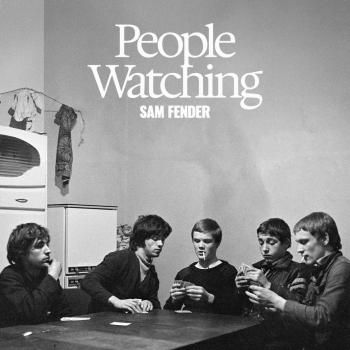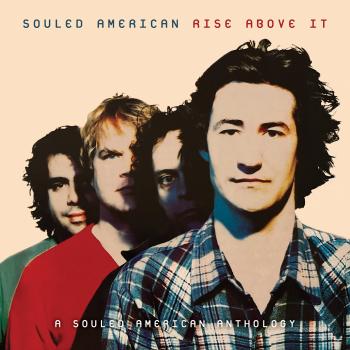
The Isaac Hayes Movement (Remastered) Isaac Hayes
Album Info
Album Veröffentlichung:
1970
HRA-Veröffentlichung:
18.11.2016
Das Album enthält Albumcover Booklet (PDF)
Entschuldigen Sie bitte!
Sehr geehrter HIGHRESAUDIO Besucher,
leider kann das Album zurzeit aufgrund von Länder- und Lizenzbeschränkungen nicht gekauft werden oder uns liegt der offizielle Veröffentlichungstermin für Ihr Land noch nicht vor. Wir aktualisieren unsere Veröffentlichungstermine ein- bis zweimal die Woche. Bitte schauen Sie ab und zu mal wieder rein.
Wir empfehlen Ihnen das Album auf Ihre Merkliste zu setzen.
Wir bedanken uns für Ihr Verständnis und Ihre Geduld.
Ihr, HIGHRESAUDIO
- 1 I Stand Accused 11:39
- 2 One Big Unhappy Family 05:54
- 3 I Just Don't Know What To Do With Myself 07:06
- 4 Something 11:46
Info zu The Isaac Hayes Movement (Remastered)
„Isaac Hayes Movement“ is aptly named. It was here that Hayes reached his pinnacle as an arranger and producer, generating lengthy pieces that ebbed and crested into "movements" that were worlds removed from the taut, three-minute pop songs he helped write and craft for Stax/Volt studios in the 1960s. Ironically, none of the material on „Movement“ is penned by Hayes. Instead, he takes on four stylistically diverse tunes: the Beatles' "Something," Jerry Butler's "I Stand Accused," Chalmers/Rhodes's "One Big Unhappy Family," and the Bacharach/David ballad "I Just Don't Know What To Do With Myself."
Yet Hayes so radically transforms these songs--filling them with his meticulous orchestrations and complex horn charts--that he re-defines them as his own. The lengthy spoken prelude to "I Stand Accused" turns the song into a study of obsessive longing with an almost novelistic sweep. "Something," the album's longest cut at nearly 12 minutes, uses the full colors of an orchestra to dramatic effect, while "I Just Don't Know What To Do With Myself" is a textbook example of smooth, string-sweetened soul. Hayes gives full rein to his arranging skills on ISAAC HAYES „Movement“, making it one of the most ambitious, grandiose soul records of the era.
„Although this is Isaac Hayes' third long-player, he had long been a staple of the Memphis R&B scene -- primarily within the Stax coterie -- where his multiple talents included instrumentalist, arranger, and composer of some of the most beloved soul music of the '60s. Along with his primary collaborator, David Porter, Hayes was responsible for well over 200 sides -- including the genre-defining "When Something Is Wrong With My Baby," "Soul Man," "B-A-B-Y," "Hold On, I'm Comin'," and "I Had a Dream." As a solo artist however, Hayes redefined the role of the long-player with his inimitably smooth narrative style of covering classic pop and R&B tracks, many of which would spiral well over ten minutes. The Isaac Hayes Movement (1970) includes four extended cuts from several seemingly disparate sources, stylistically ranging from George Harrison's "Something" to Jerry Butler's "I Stand Accused" and even Burt Bacharach and Hal David's "I Just Don't Know What to Do With Myself." These early Hayes recordings brilliantly showcase his indomitable skills as an arranger -- as he places familiar themes into fresh contexts and perspectives. For example, his lengthy one-sided dialogue that prefaces "I Stand Accused" is halting in its candor as Hayes depicts an aching soul who longs for his best friend's fiancée. Even the most hard-hearted can't help but have sympathy pains as he unravels his sordid emotional agony and anguish. Hayes' lyrical orchestration totally reinvents the structure of "Something" -- which includes several extended instrumental sections -- incorporating equally expressive contributions from John Blair (violin). Both "I Just Don't Know What to Do With Myself" and the comparatively short (at under six minutes) "One Big Unhappy Family" are more traditionally arranged ballads. Hayes again tastefully incorporates both string and horn sections to augment the languid rhythm, providing contrasting textures rather than gaudy adornment. These sides offer a difference between the proverbial "Black Moses of Soul" persona that would be responsible for the aggressive no-nonsense funk of Shaft (1971) and Truck Turner (1974).“ (Lindsay Planer, AMG)
Isaac Hayes, vocals, keyboards
Marvell Thomas, keyboards
Michael Toles, guitar
James Alexander, bass
Willie Hall, drums
Engineered by Henry Bush, Ed Wolfrum, Ron Capone
Produced by Isaac Hayes
Digitally remastered
Isaac Hayes
Born in Covington, Tennessee august 20, 1942, died august 10, 2008 in Memphis.
He made his first session at Stax in 1963 as a saxophonist on Floyd Newman's 'Frog Stomp' then stayed as a keyboardist, even replacing Booker T. Jones on MG's recordings. He was also a great composer and producer, along with David Porter. He was a longtime songwriter and arranger for Stax Records in Memphis, playing in the studio's backup band and crafting tunes for artists such as Otis Redding, Sam and Dave, Carla Thomas and Johnnie Taylor in the 1960s.
Among the songs he wrote for Stax artists, often with his partner David Porter, were 'Hold On, I'm Comin',' 'Soul Man,' 'When Something Is Wrong with My Baby' and 'B-A-B-Y.'
'Isaac Hayes embodies everything that's soul music,' Collin Stanback, an A&R executive at Stax, told The Associated Press on Sunday. '
Hayes released his first solo album in 1967, and his 1969 follow-up, 'Hot Buttered Soul,' became a platinum hit. 'Hot Buttered Soul' was notable for its lengthy, richly orchestrated covers of 'Walk On By' and 'By the Time I Get to Phoenix,' and became a hit.
In 1971, the theme from 'Shaft' topped the Billboard Hot 100 for two weeks and won an Academy Award for best original theme song. The song and the movie score also won Grammy awards for best original score and movie theme.
Hayes won a third Grammy for pop instrumental performance with the title track to his 1972 'Black Moses' album.
From the late 1990s through 2006, Hayes provided the voice of 'Chef' for Comedy Central's raunchy animated series 'South Park,' as well as numerous songs.
The role introduced him to a new generation of fans, but he left after the show lampooned his own religion, the Church of Scientology.
Hayes' other acting roles included 'Tough Guys,' 'I'm Gonna Get You Sucka' and 'Hustle & Flow.' He played himself in the forthcoming 'Soul Men,' with Samuel L. Jackson. 'Soul Men' also stars Bernie Mac, who died Saturday.
Hayes was inducted into the Rock and Roll Hall of Fame in 2002.
Booklet für The Isaac Hayes Movement (Remastered)

















